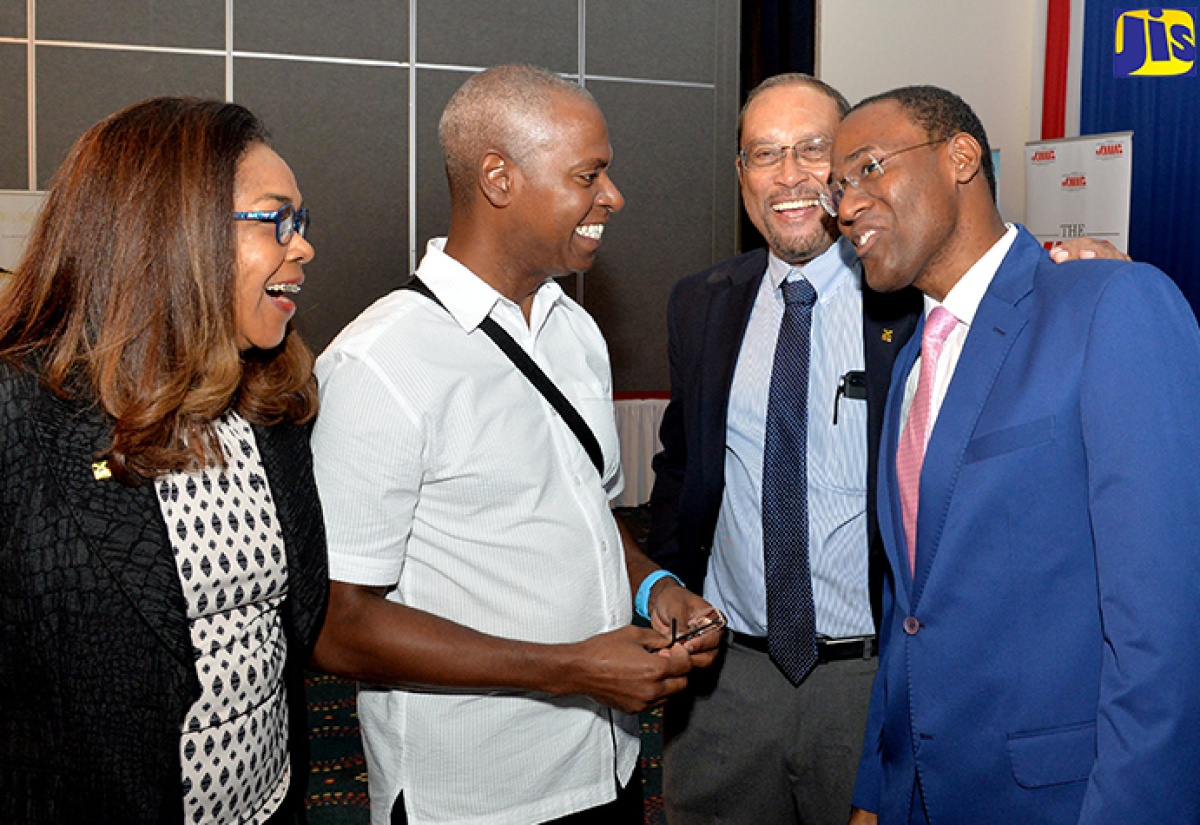Finance Ministry Drafting Policy to Respond to Natural Disasters
By: , September 21, 2018The Key Point:
The Full Story
Finance and the Public Service Minister, Dr. the Hon. Nigel Clarke, says the Ministry is drafting a Public Financial Management for Disaster Risk Policy and Framework, for submission to Cabinet.
Addressing the Private Sector Organisation of Jamaica (PSOJ) annual economic forum at The Jamaica Pegasus hotel in New Kingston on Thursday (September 20), he said the Policy aims to strengthen Jamaica’s response to natural disasters through a streamlined national approach that will, as best as possible, facilitate the availability of dedicated resources for recovery.
Dr. Clarke informed that the Policy will be tabled in Parliament following Cabinet’s deliberations, and emphasised that the Government wants to “ensure that we have consensus [through a national approach] because natural disasters affect us all”.
He said that Jamaica and other Caribbean countries are vulnerable to natural disasters, citing Sunday’s (September 16) 4.6 magnitude earthquake that shook sections of the island.
The Minister said data from the Association of Caribbean States (ACS) show that the Caribbean recorded 165 natural disasters between 1990 and 2008, “and as we know from our experience… natural disasters result in unplanned expenditure”.
Noting that events like Hurricane Gilbert, which devastated the island in 1988, “only occur once every several decades,” the Minister said data and experience show that they “cost [countries like] Jamaica tremendously”.
Additionally, he said natural disasters can overwhelm public resources and potentially set small countries back “for years”.
Dr. Clarke said Jamaica has undergone and sacrificed too much in the quest to reduce debt, attain fiscal stability and exit a programme relationship with the International Monetary Fund (IMF), to risk facing the potential threats and risks posed by natural disasters, without having adequate safeguards in place.
[foogallery id=”189541″]
These, he noted, have been “tremendous” over the last several years. They include contingent credit claims and catastrophe bonds, which the Minister said have ensured the availability of funding and other resources to alleviate resulting dislocation and inconveniences.
“Clearly, there is no [contingency] that can insulate us 100 per cent from all risks for all times… but we must begin [somewhere]… and as our fiscal space opens up, we can take on more and more protection,” he added.
Dr. Clarke said with the Public Financial Management for Disaster Risk Policy and Framework in place, “we can build on top of, within the scope of our fiscal resources, the products that can help us to alleviate the impact of natural disasters”.
He maintained that Jamaica’s quest for economic independence and resilience will require that, in addition to the monetary strength and fiscal discipline that are institutionalised, “we also have an institutionalised response to natural disasters [and] the financial risk posed by natural disasters”.


